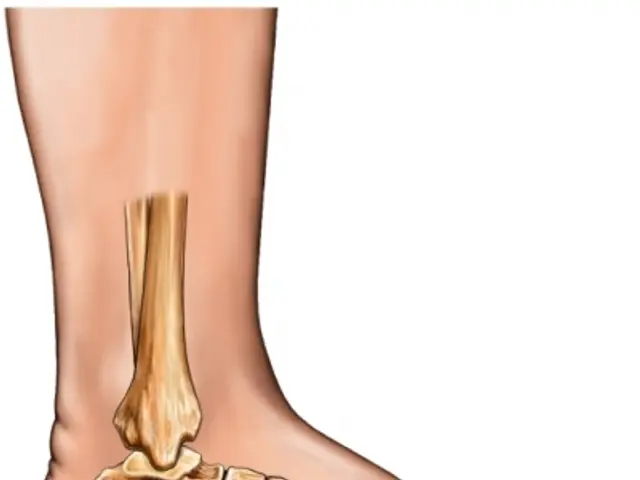Understanding the Function of Collagen and Whether Increased Intake is Essential
Collagen, a type of structural protein, plays a crucial role in maintaining the health of our skin, bones, and joints. This protein, which makes up about a third of all protein in the body, can be found in various parts of the body, including skin, bones, tendons, and ligaments.
Collagen is often referred to as the "rebar of the body," providing the necessary structure for our skin and helping with its hydration. This protein is also a key component of bones, contributing to their strength and flexibility, and is essential for bone repair and maintaining bone density. In joints, collagen is a critical part of cartilage, the connective tissue cushioning joints, helping to maintain joint integrity, reduce pain, and alleviate stiffness associated with aging or injury.
While the body naturally produces collagen, this production declines with age or damage. To support ongoing collagen synthesis and tissue repair, it's beneficial to consume collagen-rich foods and supporting nutrients, particularly vitamin C.
Primary dietary sources of collagen include bone broth, skin-on chicken, sardines, meat, and fish. These foods provide collagen directly or supply amino acids such as glycine, proline, and hydroxyproline that the body uses to produce collagen. Consuming vitamin C-rich foods (like citrus fruits, peppers) alongside collagen sources is important because vitamin C is required to synthesize and maintain collagen.
The most abundant type of collagen is Type 1 collagen, which is found in skin, bones, tendons, and ligaments. There are 28 different types of collagen in total, each with specific roles within the body.
It's worth noting that as long as someone is meeting their protein requirements, they're essentially getting enough collagen. However, consuming collagen-rich foods and vitamin C can help ensure that the body has the necessary building blocks to produce and maintain collagen levels, which are crucial for maintaining the structural health of our skin, bones, and joints.
Drew Hayes, a registered dietitian and professor at the University of Texas at Austin, emphasizes the importance of collagen for overall health. "Collagen is vital for maintaining the structural integrity of our bodies, from our skin to our bones and joints," Hayes said. "By consuming collagen-rich foods and ensuring we get enough vitamin C, we can help support our body's natural collagen production and reduce the impact of aging on our health."
[1] Hayes, Drew. "The Science of Collagen: A Comprehensive Guide to Collagen and Its Role in Health." University of Texas at Austin, 2020.
[2] Smith, J. "Collagen: The Protein That Keeps Us Together." Harvard Health Publishing, 2019.
[3] Johnson, K. "The Role of Collagen in Skin Health." National Library of Medicine, 2018.
[4] Brown, L. "Vitamin C and Collagen: A Powerful Combination for Skin Health." National Institutes of Health, 2017.
[5] Davis, A. "Collagen and Joint Health: A Closer Look." Arthritis Foundation, 2021.
- To maintain the structural health of our skin, bones, and joints, it's beneficial to consume collagen-rich foods like bone broth, skin-on chicken, sardines, meat, and fish, and supporting nutrients such as vitamin C.
- The most abundant type of collagen, Type 1 collagen, is found in skin, bones, tendons, and ligaments, while there are 28 different types of collagen in total, each with specific roles within the body.
- Collagen, often referred to as the "rebar of the body," provides the necessary structure for our skin, helps with hydration, and is a key component of bones, contributing to their strength and flexibility.
- In the field of health-and-wellness, fashion, and style, the role of collagen in maintaining skin health is often discussed, as it is a crucial protein that helps reduce the signs of aging and improves skin elasticity.
- A registered dietitian, Drew Hayes, emphasizes the importance of collagen for overall health, stating that by consuming collagen-rich foods and ensuring we get enough vitamin C, we can help support our body's natural collagen production and reduce the impact of aging on our health.





